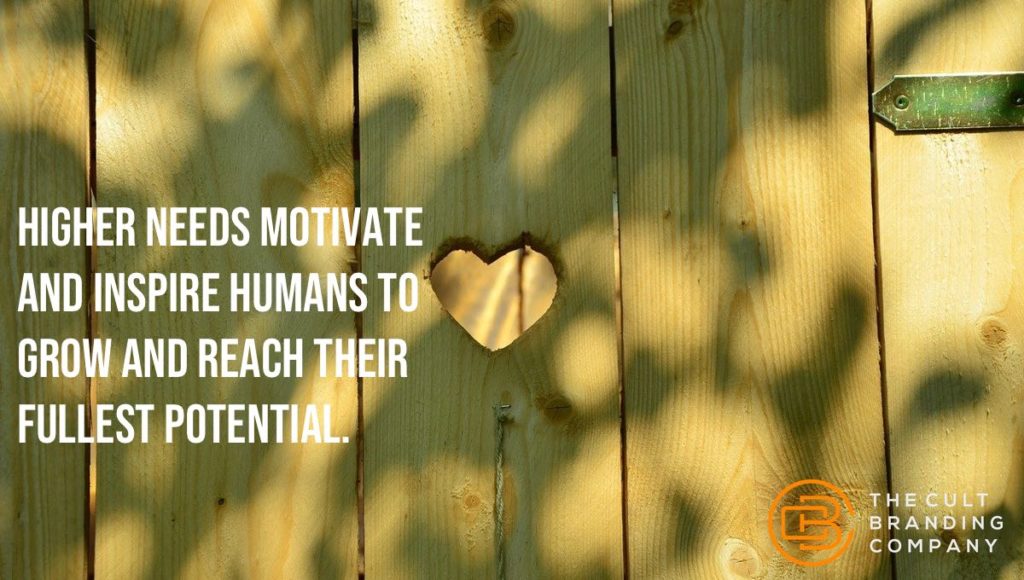
Remember Maslow’s Hierarchy of Human Needs?
Biological needs. Safety and shelter needs. The need to belong and to feel loved. Self-esteem and the need to feel good about oneself in relation to others.
These are basic human needs. Every human being has them.
Every customer is constantly looking to meet these needs. And every business—consciously or not—attempts to help their customers meet at least some of them.
Meeting customers’ basic needs is the starting point. Your company needs to constantly develop new and superior ways to meet these needs.
But, meeting customer needs and base level desires isn’t enough. Your competitors can probably meet your customers’ basic needs too.
There are two areas of Maslow’s hierarchy that differentiate Cult Brands from other businesses. And it is these two areas that hold the secret to customer loyalty and prosperity.
The Need to Belong: A Driving Force in Human Motivation
From the moment we are born, we are partly defined by the communities we belong to. Even the smallest baby is part of multiple communities: she is part of a family, an ethnic group, even a nation.
As we grow and develop, we make choices that expand our identity. One way we do this is by joining or associating with various communities or social groups.
We join communities by our actions. We join communities by sharing a common belief. Joining groups makes us feel like we belong to something bigger than ourselves.
Cult Brands tap into this driving force by giving their customers the sense that they belong. The values and beliefs of the brand become part of their customers’ own identity.
The need to identify with a group and feel a sense of belonging is so strong that some customers go so far as to “brand” themselves with the logo of the company they identify with. Brand tattoos, then, provide membership into a social group.
After interviewing Brand Lovers of many of the world’s quintessential Cult Brands—like Apple, Linux, Vans, Harley, Life is good, Star Trek, Oprah, and IKEA—a common theme we hear is the feeling of family.
Cult customers feel like they are part of the collective. Cult Brands make their Brand Lovers feel included, important, special.
Higher Needs: The Key to Everlasting Loyalty
Now we jump to the top of Maslow’s hierarchy. Above, we listed all of the basic human needs. But Maslow’s real brilliance was in how he articulated that humans have needs beyond the basics.
We have higher needs, or spiritual needs.
Higher needs include:
- Cognitive (meaning, knowledge, and self-awareness)
- Aesthetic (beauty, form, balance)
- Self-actualization (personal growth and development)
- Transcendence (spiritual values)
All of these needs are human too. Everyone has them, but only a small minority of companies seek to help their customers meet them. Those that do tend to create legendary businesses.
These higher needs motivate and inspire humans to grow and reach their fullest potential. The more time we invest meeting these needs, the happier, mentally healthy, and creative we become.
Want to link positive emotions and associations between your customers and your brand? Help them reach their higher needs.
There are many ways to do this:
- You can help them express themselves like Apple does.
- You can help them achieve their most important goals as Google does.
- You can help them celebrate a sense of aliveness and playfulness like Jimmy Buffett and Star Trek do.
- You can inspire them with the call for freedom like Harley-Davidson and Oprah do.
How can you elevate your customers? How can you help them become greater versions of themselves? How can you help them reach their highest goals?
This is the gift you can offer your customers. Loyalty and higher profitability is what they give you in return.
